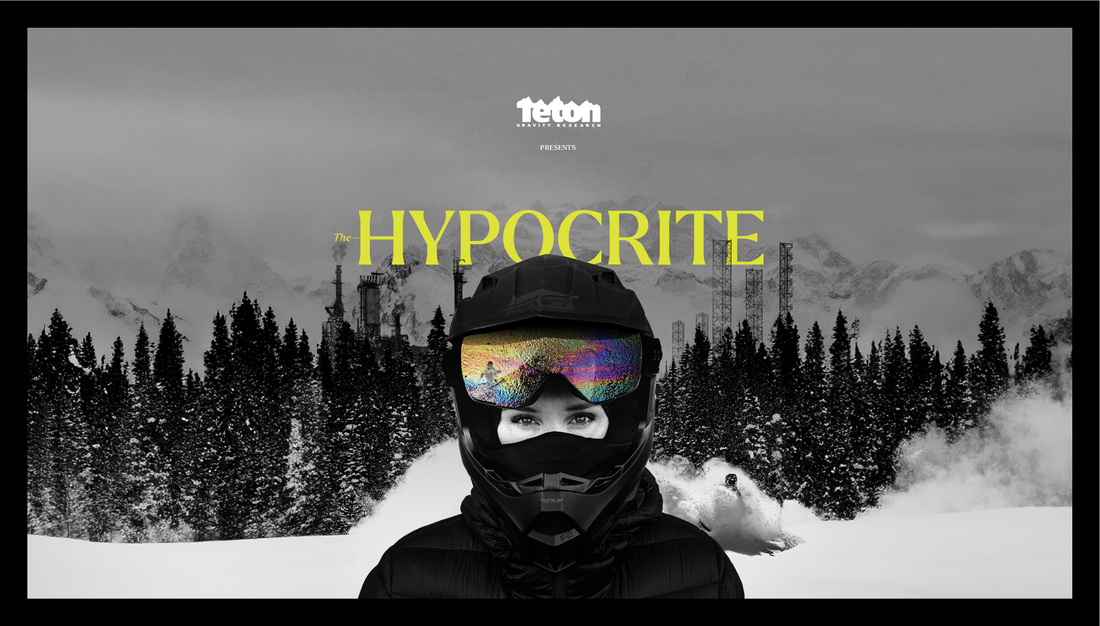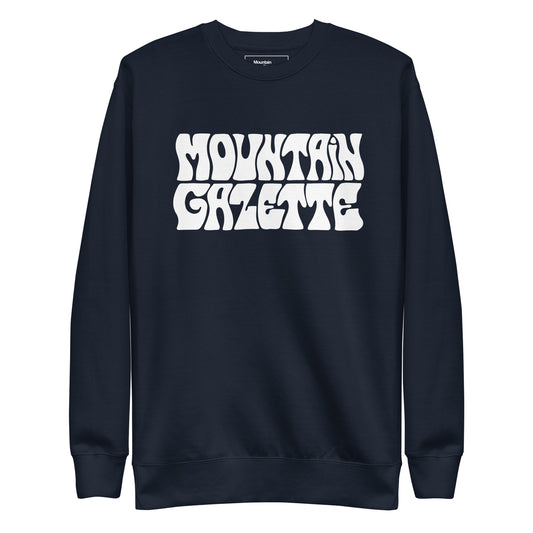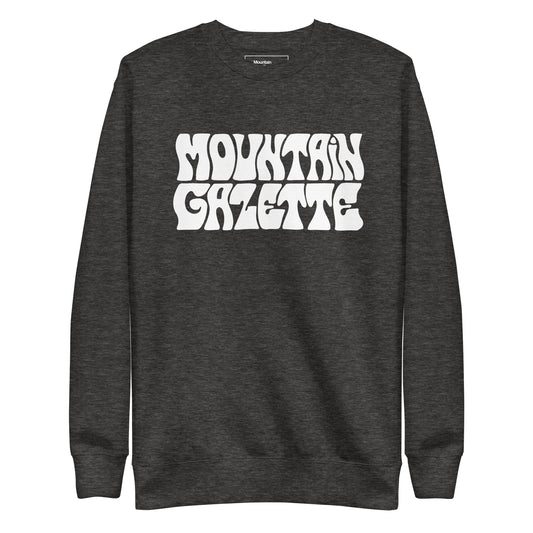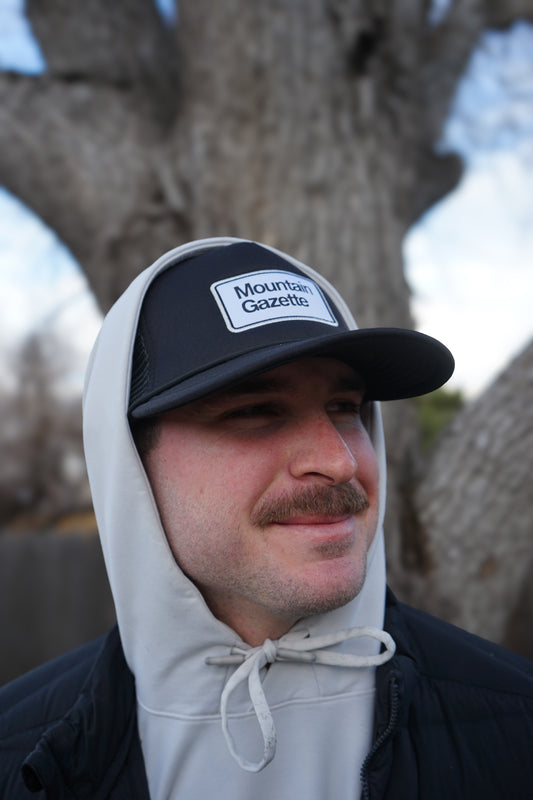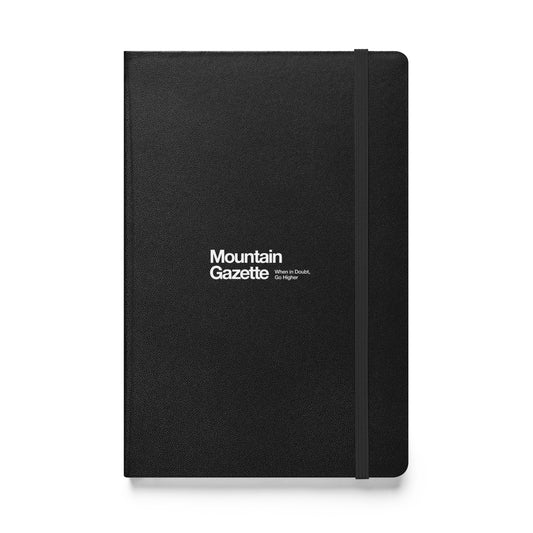
By Hannah Truby
Next to politics and celebrity gossip, news on climate change is ubiquitous in the media. The spike in climate films have certainly spurred conversation across many sectors - particularly the outdoor industry - though it seems they opt for one of two approaches to the narrative: the rallying, idealistic take that, for many, seems delusive, or, the nihilistic, 'we're all screwed' perspective that does little to encourage action. Enter: 'The Hypocrite'.
Enegbretson’s internal struggle of how she can call herself a climate advocate and still ride her snowmobile lays the foundation for the film and sets it into motion. The answer, it turns out, is more complicated than initially thought.
Engerbretson anticipates that the film will take viewers on her six-year journey in 26 minutes.

 Professional athletes often rely on fossil fuels for travel, and encourage the travel and consumerism of their fans – yet many skiers like Engerbretson also advocate for sustainability. In addition to confronting her own climate hypocrisy, Engerbretson’s biggest hope for the film is that it creates unity among recreators, and shines a light on the true aggressors.
Professional athletes often rely on fossil fuels for travel, and encourage the travel and consumerism of their fans – yet many skiers like Engerbretson also advocate for sustainability. In addition to confronting her own climate hypocrisy, Engerbretson’s biggest hope for the film is that it creates unity among recreators, and shines a light on the true aggressors.
“Rather than judging each other for how we like to recreate, I want people to realize that we're on the same team. And I’m not saying that there's not a role for individual action. There absolutely is - but the majority of this issue is not our fault.”
One of the wilder revelations Engerbretson learned on her journey was how the idea of the “individual carbon footprint” came from a marketing campaign created by the fossil fuel industry.
From the 1960s and into the 80s, climate change was generally accepted to be anthropogenic, or human-caused. But in the mid-90s, the term ‘climate denial’ began to pop up and spike in popularity.
“The fossil fuel industry watched what the tobacco industry did in terms of public misinformation about the risks of smoking,” Engebretson says. “They used that recipe to misinform the public about the realities of burning fossil fuels to put the blame on individual shoulders and distract from their role.”
In a lesson that will likely both enlighten and enrage the viewer, ‘The Hypocrite’ seeks to remind viewers that the vast majority of global warming is directly caused by the fossil fuel industry, and, consequently, much of the moral judgment surrounding activities like snowmobiling.
“I don’t want to say that it’s all systemic action, and not individual… it's a both and,” Engerbretson explains. “But when we put all the weight on the individual, it makes it really difficult for people to feel good enough to engage. It’s paralyzing, which hinders progress.”
Paralyzed, and left with the question of whether or not individual action really matters. But ‘The Hypocrite’ answers that as well: it does.
“Another thing that I learned over the years working with POW - that became another pillar for the film - is the tremendous amount of untapped power our community has,” says Engerbretson. “We think that fossil fuel is this big, bad thing that we can never go up against. But actually, we as outdoor people, represented as an industry, contribute double to the US G.D.P. what the fossil fuel extraction industry contributes annually.
Once I realized that it's not all my fault, and that I’m part of a community that can make a huge difference, I felt really hopeful.”
In the film, viewers follow Engerbretson and other POW members to Capitol Hill, where they advocate for the climate, lobbying for support and funding. “A crazy” and “intimidating” experience, Engerbretson's profession as a skier had, in many ways, prepared her for it.

"Lobbying in D.C. is wild…standing in a pantsuit, on Capitol Hill, I was terrified,” Engerbretson recounts. “But what really struck me is how - politicians are just people we've loaned our power to, to serve their constituents and to listen to us and to take meetings and phone calls. If we can encourage even a portion of the outdoor industry to use that power, we can have huge influence.”
Engerbretson says her target audience for the film are those that might not typically watch a film about climate change.
“With this film, I’m really trying to access the middle. I think there's a lot of people in the middle of the ideological and political spectrum that have a lot of concern, but they're not going to become vegans or move into a cave; they just don't know what to do. Those are the people that I really want to see this film.”
When individuals feel too small, the problem too impossible, ‘The Hypocrite’ reminds viewers of one’s own “power levers”; Engerbretson says that the most effective form of climate advocacy is being an active and engaged citizen, a power lever we all have access to.
“I ask people to look at their pond,” says Engerbretson. “If you throw a rock in your pond, where do your ripples go? What are the power levers in your life? What resources are you willing to dedicate to that? Tap into that.”
Resources such as Team POW provide this and more, Engerbretson says, offering online courses, reading lists, podcasts, newsletters, and voter guides and support, as well as creating a space of community.
“As humans, we love to know that we're not alone,” says Engerbretson. “I think that's the importance of having a community and a movement - to have those people to turn to, it reminds you you’re not in this alone, and you’re a part of something huge.”

Team POW is free to join, and is just one example of many resources for climate advocacy and education.
‘The Hypocrite’ is now available to watch at ProtectOurWinters.org

